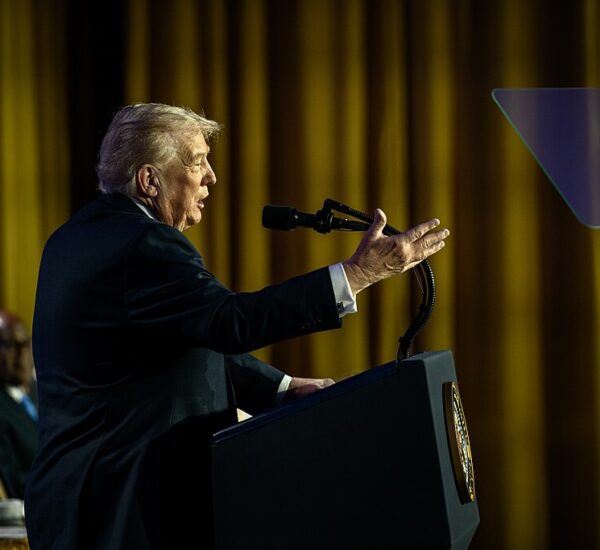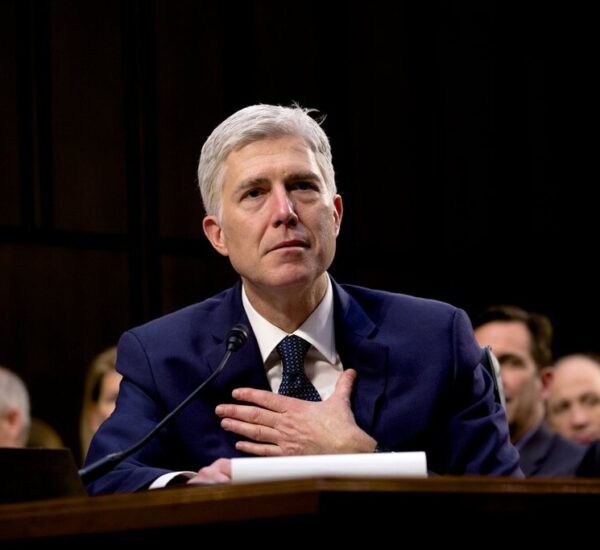Trump is serious about getting money back to taxpayers.
In a major win for fiscal responsibility, President Trump’s U.S. Department of Transportation (DOT) has announced it will cancel a controversial high-speed rail grant—putting a stop to what many have called a wasteful government spending spree.
$63.9 Million in Federal Taxpayer Funds Recovered
Transportation Secretary Sean Duffy confirmed that the Federal Railroad Administration (FRA) and Amtrak have reached an agreement to terminate the $63.9 million grant for the Texas High-Speed Rail Corridor, previously branded as the Texas Central Railway project.
“This decision puts the interests of taxpayers first,” Duffy stated. “There is no justification for pouring public money into a project that continues to escalate in cost and stray from its original private-sector promise.”
The now-defunct rail project, once touted as a private initiative to link Dallas and Houston, ballooned into a $40 billion federal-dependent venture—raising red flags across the board.
Government Waste Avoided: Why This Project Was Scrapped
The Department of Transportation cited the massive capital cost, vague financial planning, and dependency on federal loans as key reasons for walking away. Critics of the project long argued that it became a burden on American taxpayers under the Biden administration, despite initial promises of private backing.
“If private investors truly believe in this project, let them fund it,” Duffy said. “Amtrak was never intended to be a bailout tool for speculative development.”
Amtrak’s Struggles and Biden-Era Priorities Questioned
Amtrak has struggled for years with operational failures, aging infrastructure, and billions in deficits. The rail company lost a large portion of its Horizon coach fleet due to corrosion, while delays across the Northeast Corridor remain persistent.
Yet, under Biden’s leadership, Amtrak pursued massive federally backed loans to take on projects like the Texas rail system—raising concerns about misplaced priorities.
According to the FRA, fixing Amtrak’s existing subpar service should be the focus—not launching massive, high-risk projects that lack proven benefit to everyday Americans.
Real Accountability: What Happens to the $60 Million Now?
The nearly $64 million saved will not go to waste. DOT officials confirmed the funds will be redirected to projects that “support safe, efficient, and reliable rail transportation” that directly benefit the American public.
“This is a smart, strategic redirection of funds,” an FRA spokesperson said. “We need results—not rail fantasies.”
Despite canceling this specific grant, the FRA said it remains open to future passenger rail development—but only under fiscally sound and privately led models.
A Victory for Taxpayers and Common Sense
This announcement is being celebrated as a major victory for American taxpayers, especially older Americans who’ve seen decades of government overspending with little return. By shutting down the Texas High-Speed Rail project, the Trump-era transportation department is sending a powerful message: reckless spending will not be tolerated.
While the dream of connecting Texas cities may remain, it’s clear that such ambitions must now come from the private sector—not the federal checkbook.







This is NO victory for common sense. AmTrac is an inadequate disaster precisely because it lacks a high-speed rail component, which should have been assisted and funded at the same time that Europe and Japan developed their high-speed rail systems. I had hoped that the Trump Administration would at last provide the common sense to recognize the difference between wasted Federal funding of local programs and projects and greatly needed NATIONAL transportation systems, such as high-speed rail should become. Air transportation is inefficient at the same distances of travel that can be most efficiently served by regional, even national, systems of high-speed rail. Airports and air traffic controllers cannot handle the volumes of air traffic needed for expanded service. High-speed rail can, and should have been the next national public transportation project following the Interstate Highway System. Cancellation of this funding sends the exact wrong signal about the value of a regional high-speed rail system and the important, and long-overdue, Federal government role in its development. Instead of cutting the Texas project funding, the Federal government should be evaluating its expansion to Kansas City and/or St. Louis.